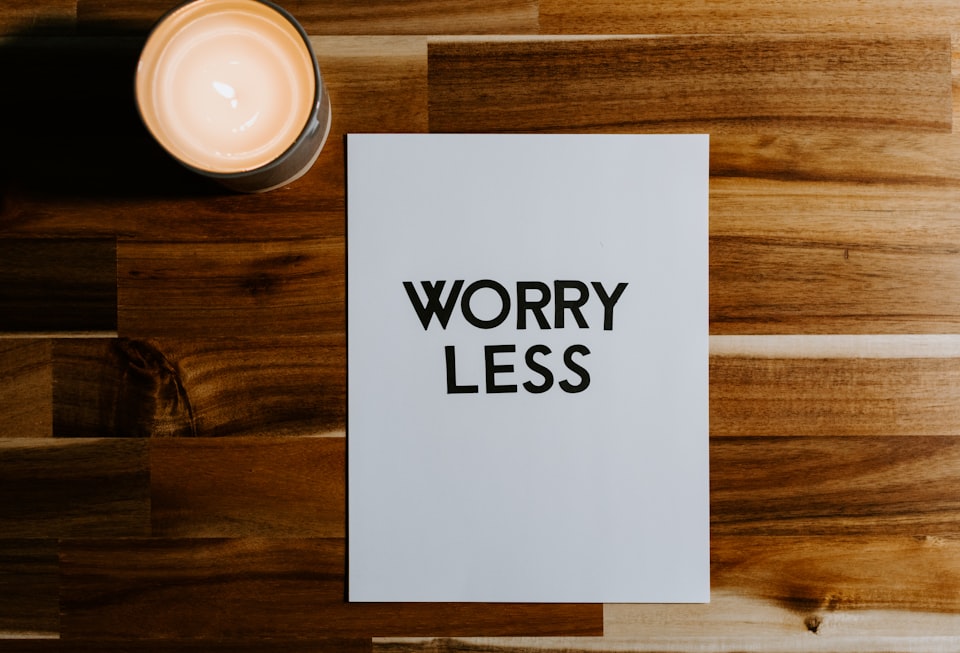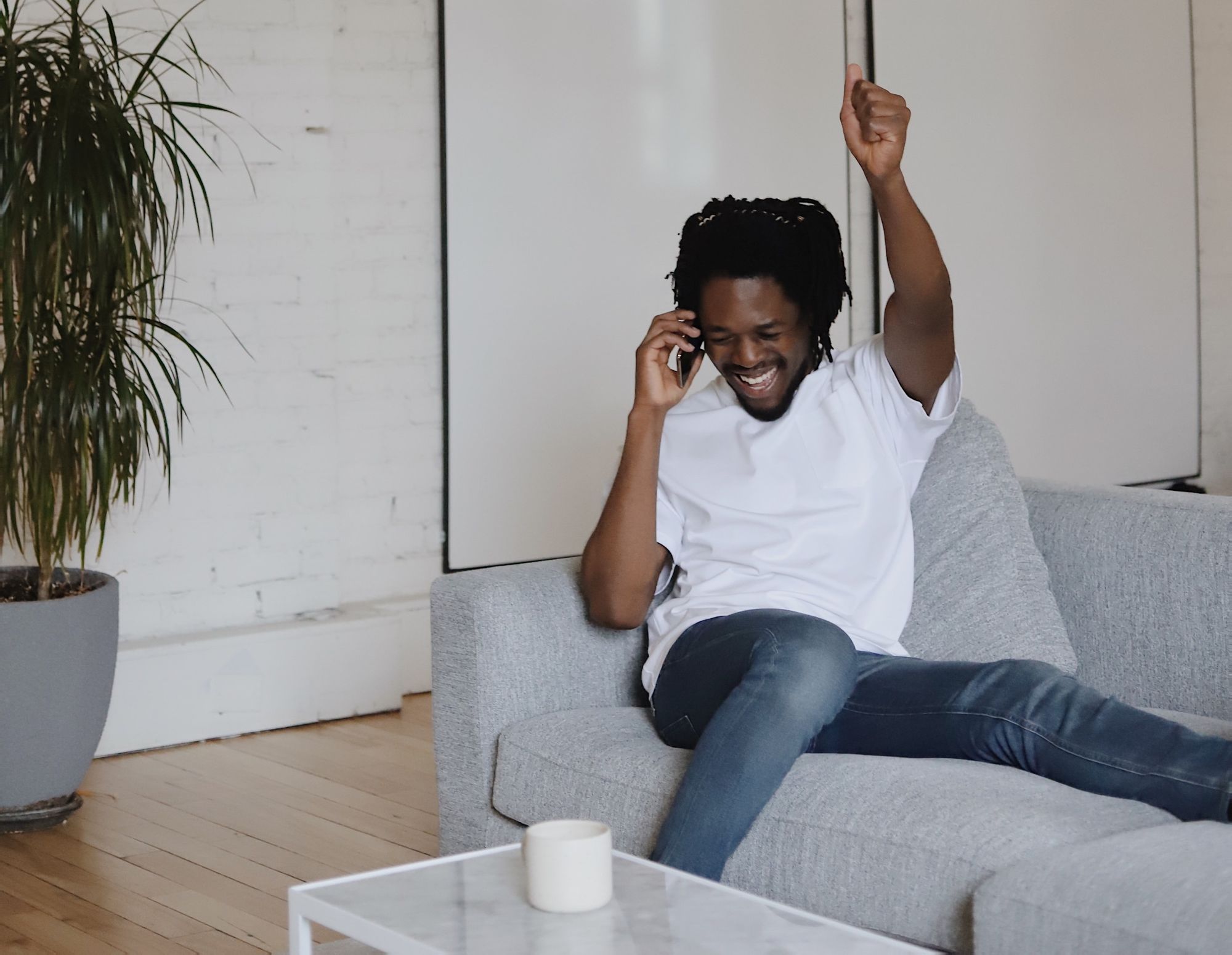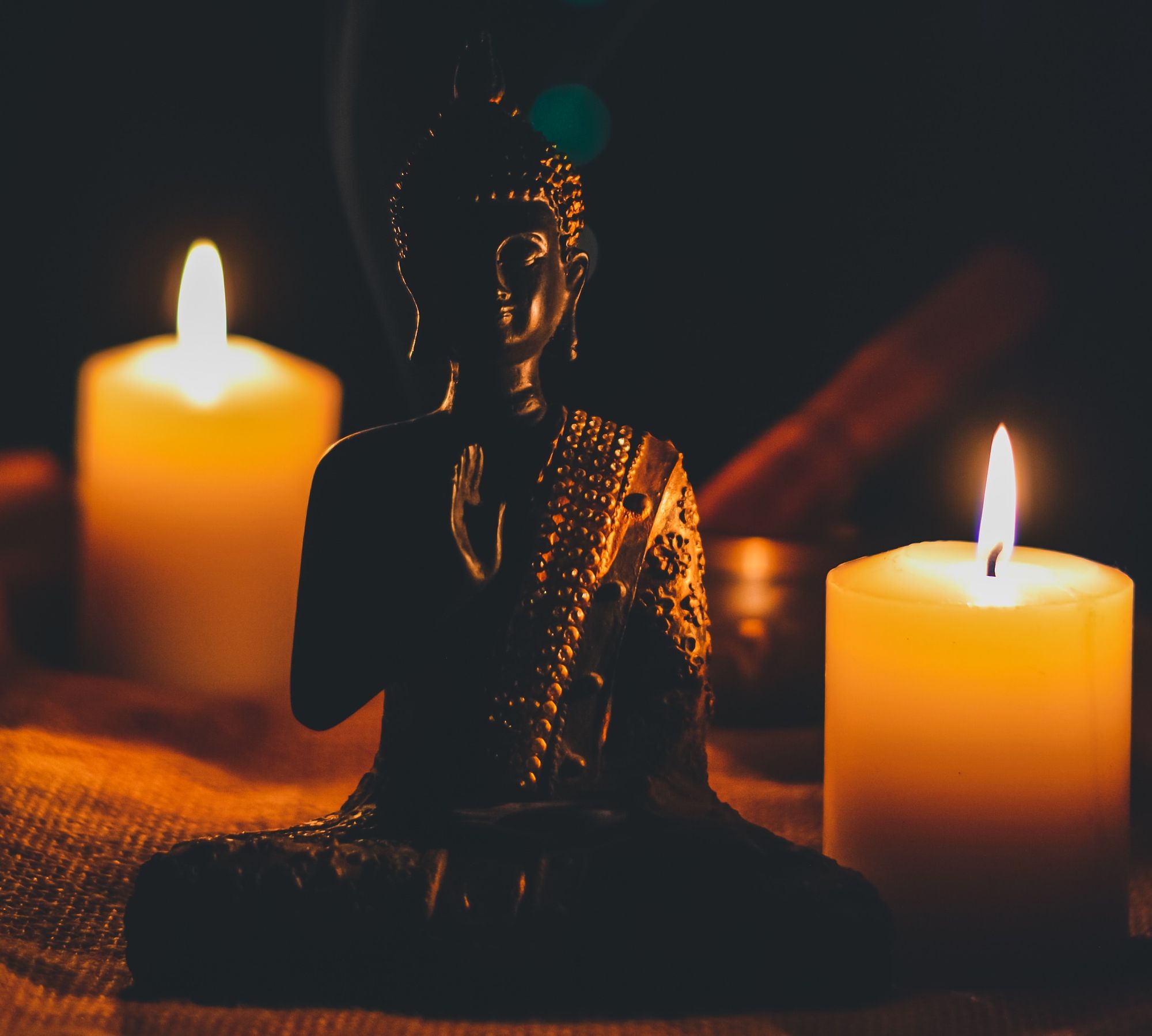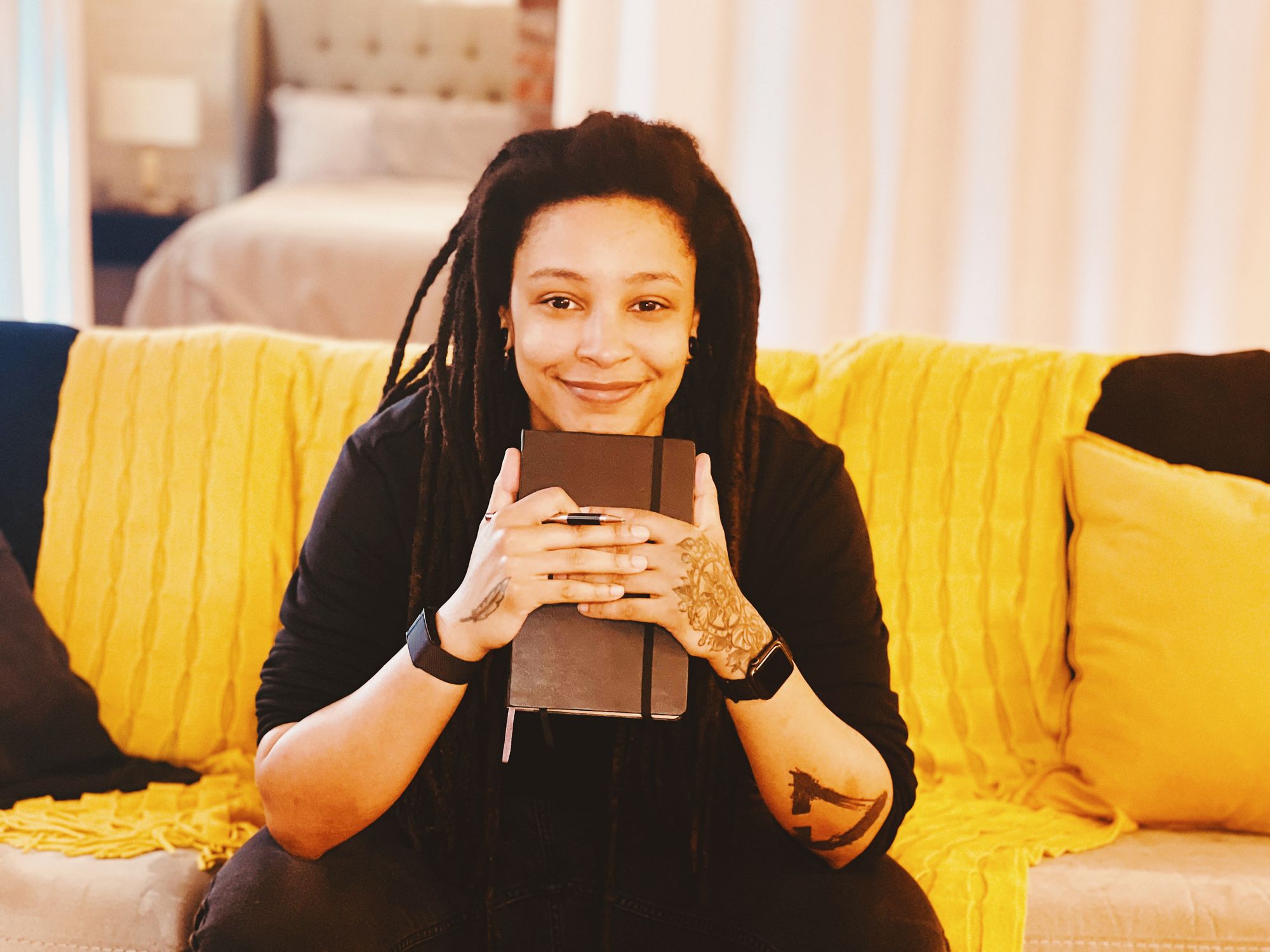Understanding and Healing Relationship Anxiety

Collectively speaking, we seem to be on the same page about relationships and what we want out of them.
- We want to love and be loved
- We want to feel connected
- We want to grow with someone
- We want our relationships to add fulfillment, peace, happiness, and yes - stability to our lives. Not take away from them.
Relationships can do all of these things. The question is, how will we know?
Enter stage left: relationship anxiety.
What Is Relationship Anxiety?
You know that PITA fear, worry, and doubt about our relationships that pops up in our own heads on a regular ass day? That’s relationship anxiety.
It’s here when regular-ass irregularities happen (they forget to text back while at work), and it's here even when everything appears to be going well.
It’s just here and it’s annoying af for everyone let’s be real.
It's natural and normal to have relationship anxiety, but I think everyone experiencing this will agree that it gets in the way of experiencing healthy happy relationships.
We've gotta heal it.
Where Does Relationship Anxiety Come From?
Daddy issues. Maybe.
On a serious note, relationship anxiety is a major tell tale sign of an insecure attachment style, and insecure attachment styles stem from our upbringing.
Basically, our sense of security in our relationships with our caregivers determines our ability to feel secure in our relationships today. Daddy really might’ve done it. But Mommy, Granny, siblings, and more can also play a role.
Signs of Relationship Anxiety
Still, relationship anxiety isn't the same thing as an insecure attachment style. Here are some signs that you or someone you know is experiencing relationship anxiety:
Stories of Worry and Doubt Come Out of Nowhere:
If you're constantly worried that:
- Your relationship will end
- Your partner is upset with you or will reject you
- Something's "wrong" or trouble is brewing
You might be experiencing relationship anxiety. Still, a lot of the time that stuff ends up being true. Valid, but there's a reason for that.
The truth is in the details. It's relationship anxiety if, say, you have a story come up in your head based on minimal evidence.
A common example is if someone doesn’t text you back as quickly as normal.
If the first thought that comes up from that one piece of evidence is that they’re losing interest and it’s personal, that’s a sign of anxiety.
The (more likely) truth is that they were distracted, sidetracked, had an unusually busy day, etc. and that it wasn’t personal at all.
But if we ride that story out as if it's true, our own behavior will change. And changes ini our own behavior will impact the relationship. We’ll notice it becomes a self fulfilling prophecy. Usually this is because being on the receiving end of someone’s constant distrust and feeling like you have to prove yourself can, actually, cause people to lose interest over time.
Not because anything's wrong with you, but because other people can't change your mind about them. A lot of that work is your own.
This doesn’t mean to hide the anxiety, but it’s a big sign that it’s time to heal it from the root.
Fear of Rejection:
People think fear of rejection is obvious, but it's not. It's not always characterized by this huge emotional reaction to rejection and abandonment. It's also characterized by:
- An avoidant or flat affect in the face of rejection (convincing yourself to not care or feel it)
- Never putting yourself in a position to be rejected to begin with
- "Cutting to the chase" in a breakup. Otherwise known as leaving before they get a chance to leave you instead of working it out if you actually want to stay.
You can tell your tolerance for rejection by your willingness to feel it when it happens, without it overtaking you.
If you see rejection as a normal part of life, that really sucks and hurts, but you now you'll get through it and be okay, you have a secure view of rejection.
If rejection is the end of the world, or something you're totally unaffected by, chances are you have a fear of feeling the pain of rejection. Which shows up on both ends of that spectrum.
Difficulty Trusting:
Trust issues are the hallmark of relationship anxiety, aren't they?
But they aren't what we tend to think either.
They're characterized the way we expect them to be. The constant doubt in the reality the other person is presenting to you. The inability to ask for and receive help. Having your guard up in your partner’s direction.
On the extreme end of trust issues we have invasions of privacy, extreme “clinginess” for the sake of not having to worry that they’re up to no good, and so on.
But these aren't the root of trust issues.
So I’ve said it before, but I’ll happily say it again:
Realizing that it’s your own judgment that you’re struggling to trust is the game changer for healing trust issues.
If you were confident in your ability to see the people around you clearly and know how to navigate the messiness of common humanity, you wouldn't struggle so much with it.
Looking at it this way isn't just true, it's empowering. Before, everything was out of your control. It was up to other people to decide to be trustworthy. Now, you can focus on developing a secure relationship with the concept of trust itself.
And here’s a full guide on the Art of Trust to help you with that.
Overanalyzing:
Speaking from experience, people who over analyze have a tendency to be incredible problem-solvers.
We keep an eye on everything and analyze it to death to give ourselves a sense of control. Meaning: if I can spot the problem or the pattern and understand it, I can fix it before it gets out of hand.
There are two issues with this:
- It is true that relationships will have problems and we’ll need to be great with repair. But relationships take two. Overanalyzing usually limits the space our partner has to actually show up and be a part of the picture. Putting a lot of emotional load on us, and taking a lot of autonomy from them. The imbalance tends to speak for itself.
- Relationships aren’t here to be fixed. They're here to be experienced. If we’re not able to spend time existing in the joy and contentment relationship has to offer, we’ll turn the entire thing into a problem, and spend all of our time fixing it. Which goes against the goals we originally laid out.
Healing Relationship Anxiety
Healing relationship anxiety is a journey, but it’s a journey worth having. It means we get to rest, have peace, and liberate ourselves from our wounds. Not while cocooning, though. But while being close up to other people.
It's a beautiful experience. Here are some areas of focus to help you heal.
Becoming Aware of Your Triggers
Triggers are more than we give them credit for. They're not just uncomfortable. They’re tools for learning where our work is and how it's showing up. They're not here to turn away from.
The key is to turn toward them.
We can trace our triggers back to the root to become more aware of the original wounds and how they impact us.
Think about it this way: if I’m not aware of when and how I’m being triggered, the story that comes up that something’s wrong will feel wholly and fully true.
Why wouldn't it? I don't have anything to tell me otherwise? (Including my partner, where anxiety is concerned).
But if I already know I have an abandonment wound, it becomes much easier to put things where they belong. It's easier to remind myself that “some of what I’m feeling is from the past”. And even the simple act of noticing that usually lessens the heaviness of what’s happening in the moment today.
Tame Your Inner Critic
Relationship Anxiety drives us to control. We know that. What we don't correlate is that a big part of the reason we need to feel in control is because, deep down, we blame ourselves for things outside of our control to begin with.
Don't believe me?
How often do you:
- Offer to change how you show up without holding the other person to the same standard
- Jump to fix your partner's feelings about you instead of letting those feelings exist
- Get betrayed or cheated on and look for reasons to blame yourself or take accountability for their behavior
- Think to yourself that if you could just change this thing about yourself, then you'll finally attract people who stay/are healthy/etc.
If this is you, you're not alone. But you - and everyone else - are trying to focus on things outside of your control. And it's because you're blaming yourself for things outside of your control when you think you have control over things you don't.
No amount of growth will make you more deserving of love. You already are. It's your inner critic who doubt this. And to its credit, no one's shown them different. So don't blame it. Work with it.
Working to transform your relationship with your inner critic is really helpful. You discover how to give yourself grace, figure out what’s in your control, and stop beating yourself up for things that aren’t.
Get started with that, here:

Mindfulness and Grounding Techniques
Mindfulness meditation and grounding exercises can help you stay present, leave the past where it is, and reduce anxiety.
The more you practice, the better you get at leaving the past in the past when you need to.
Couples who meditate together will likely feel better together.
Related:

Learn the Difference Between Feelings & Stories
You ever ask someone how they feel and notice they never name a feeling?
“Elizabeth only wanted to stay on the phone for like 15 minutes last night.”
“How does that make you feel?”
“Well I feel like something’s up. She always makes time. Why doesn’t she want to talk to me?”
That’s not a feeling. That’s a story.
What this person is feeling is called "insecure". And they're not insecure because Elizabeth stayed on the phone for 15 minutes. It's the story they're telling themselves about that behavior that's driving the feeling.
Just watch how it plays out when we honor the feeling, while being open to different stories...
"I’m feeling insecure right now. And I came up with this story in a pinch to make sense of that discomfort. But the truth is, I haven’t talked to Elizabeth yet to get her side of the story. I really don't know what’s actually going on."
This is a fair start. But it gets better. Because when you add that to the understanding your triggers bit from earlier, it continues...
"I have a pattern of feeling insecure when my partner changes behavior without communicating why. This triggers my abandonment wound, and that's normal. My mom often left me hanging without explanation. But this isn't that. The truth could honestly just be that she had a long day and was tired. I was so wrapped up in my own story I didn’t even think to ask for clarification or check that she's okay."
Look at that self awareness, ay?
It doesn't mean Elizabeth is definitely doing all the great things. But it helps us put the actual facts into perspective. Those facts being:
- We don't actually know
- Our nervous system likes to jump to conclusions about shit we don't actually know to keep us alive
- We could actually know more by setting our assumptions aside, asking, and communicating
Which brings us into the natural next step.
Communication
I'm in the camp of warning against an over-reliance on communication. Still, communication is a staple of healthy relationships for a reason.
Now the partner above can ask Elizabeth if she’s okay because it’s not like her to be so short in communication. Or even better, they can own their own story.
"I got nervous when you got off the phone like that because my abandonment wound came up. It's just unusual from you. But I talked it out with myself. I did want to check on you though, you okay?"
Those of us with a history of relationship anxiety tend to do better with people who can handle this kind of openness and transparency. People who can help us make sense of the things that don’t make sense. People who can be patient through our process.
But make no mistake, this is an ask for emotional labor.
While emotional labor is a natural cost of being in relationship with someone, the energy is kind of like time: everyone has their limits on emotional and energetic supply. And we all feel the cost of putting too much of it in some spaces without balancing it out in others.
I'm saying this as someone who's been on both ends of this. It's draining for all parties to over-rely on communication.
It doesn’t matter if you’re the one who has to keep wondering and asking, or the one who has to keep feeling the pressure to over-explain to keep the peace.
Both parties end up spending more time cleaning up the mess of unnecessary worry than they do enjoying, connecting, bonding, and partnering in the actual hurdles of life.
A part of relational hygiene is to minimize the need for unnecessary emotional labor.
So our work is to manage the load by learning to see people for who they are and, again, trust our own judgment in that.
For example, the partner above might learn over time that Elizabeth will tell them if something’s wrong that they need to know. And if they don’t need to know, it’s probably her own thing she’s processing.
It is critical to be able to do this in a relationship, because over-communicating is an unsustainable emotional labor.
Eventually we need to learn to trust. And that happens over time, so it helps to work on that now.
Seek Support
Don't hesitate to seek support from a therapist or coach who specializes in trauma and relationship issues. We can support you along the journey to healing you relationship anxiety.
See more about the support I offer here:

Remember…
Healing relationship anxiety is a process, and it won't happen overnight. It takes time, patience, compassion, and support.
You aren’t alone, and having relational anxiety doesn’t mean you need to be alone. There are plenty of potential partners out there who will love you along the ride.
Keep your head up.
Rooting for You,
Tori





Member discussion